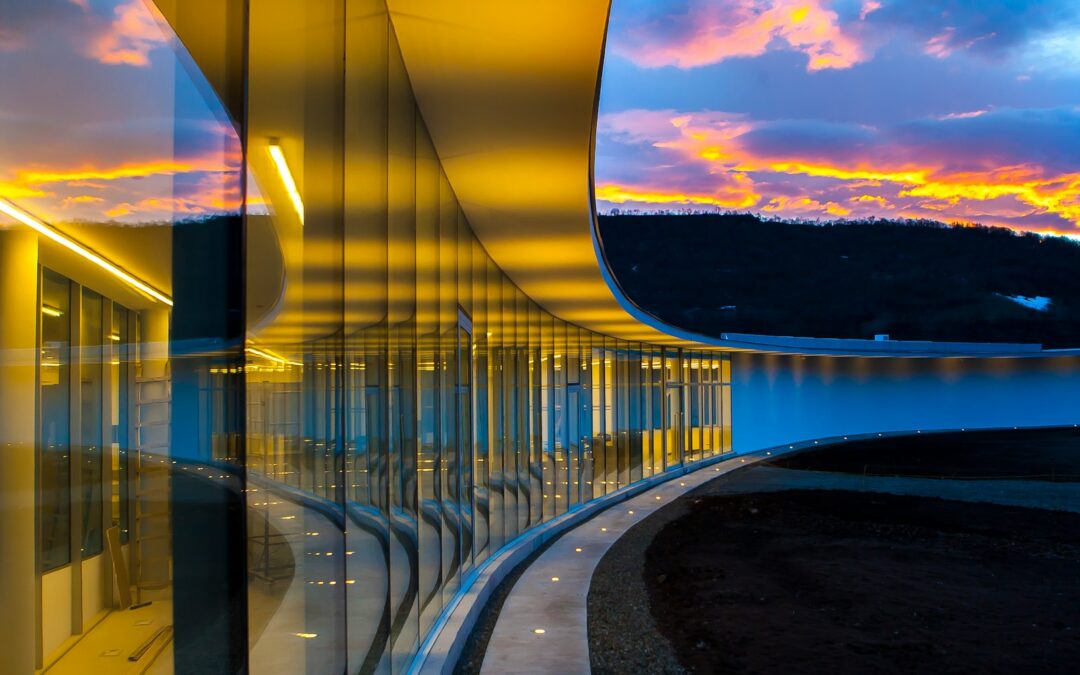Innovations and Advantages of Intelligent Architecture in the Kingdom
The Advent of Smart Building Technology
The concept of Smart Buildings in Saudi Arabia is transforming the urban landscape and setting new standards for living and working environments in the Kingdom. By incorporating advanced technologies such as Artificial Intelligence (AI), the Internet of Things (IoT), and Blockchain, these buildings optimize energy use, increase security, and improve overall user comfort. This trend not only reflects the country’s commitment to innovation but also aligns with Vision 2030’s goals for economic diversification and sustainable development.
Enhancing Energy Efficiency and Sustainability
One of the critical features of Smart Buildings in Saudi Arabia is their ability to significantly reduce energy consumption. Utilizing smart sensors and AI-driven systems, these buildings monitor and analyze energy usage in real time, allowing for automated adjustments that enhance efficiency and lower costs. Moreover, integration of renewable energy sources like solar panels further supports Saudi Arabia’s green building initiatives. This not only helps in reducing the carbon footprint but also ensures long-term sustainability, a core objective in the Kingdom’s strategic plans.
Boosting Security with Advanced Technology
Security is a paramount aspect of Smart Buildings in Saudi Arabia. Advanced surveillance systems equipped with facial recognition technology, coupled with IoT-enabled access controls, ensure that safety measures are both stringent and unobtrusive. These features make smart buildings safer for residents and businesses alike, fostering an environment where security and privacy are guaranteed. By prioritizing these high-tech security solutions, Saudi Arabia is enhancing its reputation as a safe and technologically advanced place to live and work.
Improving Quality of Life and Operational Efficiency
Smart buildings also bring about significant improvements in living standards by optimizing building operations and maintenance. AI algorithms predict maintenance needs and schedule repairs, minimizing downtime and extending the lifespan of building facilities. Additionally, smart HVAC systems and lighting controlled via mobile apps provide personalized comfort that can adapt to the preferences of any user, significantly enhancing the quality of life for all residents.
Driving Economic Growth Through Real Estate Innovation
The rise of Smart Buildings in Saudi Arabia is a boon for the national economy, stimulating growth in several sectors including construction, technology, and real estate. The demand for skilled labor in these fields promotes job creation and supports the Kingdom’s aim to diversify its economy. Moreover, the increase in property values associated with high-tech facilities makes smart buildings a wise investment for the future, appealing to local and international investors alike.
The Role of Leadership and Project Management in Smart Building Development
Effective leadership and meticulous project management are crucial in realizing the complex projects associated with smart buildings. Saudi Arabian project leaders are increasingly skilled in these areas, often supported by international expertise from countries like Switzerland, known for its precision and efficiency. Through strong leadership and strategic planning, Saudi Arabia is ensuring that its urban development continues to be world-class, with smart buildings at the forefront of this transformation.
Facilitating Connectivity and Collaboration in Smart Workspaces
In addition to residential buildings, smart technologies are revolutionizing the way businesses operate in Saudi Arabia. Smart office spaces are designed to enhance collaboration, productivity, and employee well-being. Features such as IoT-enabled conference rooms, cloud-based collaboration platforms, and AI-driven scheduling systems streamline workflows and foster a dynamic work environment. By embracing intelligent architecture in commercial spaces, Saudi Arabia is nurturing a culture of innovation and entrepreneurship, driving economic growth and competitiveness in the global market.
Optimizing Resource Management Through Data Analytics
Data analytics play a pivotal role in optimizing resource management within smart buildings. By analyzing data collected from various sensors and IoT devices, building managers can identify inefficiencies and implement strategies to improve resource allocation and usage. Whether it’s optimizing water consumption, reducing waste, or maximizing energy efficiency, data-driven insights empower decision-makers to make informed choices that drive cost savings and sustainability goals forward.
Promoting Resilience and Adaptability in Urban Environments
Smart buildings contribute to the resilience and adaptability of urban environments, particularly in the face of unforeseen challenges such as climate change and natural disasters. Through advanced monitoring systems and predictive analytics, smart buildings can anticipate and respond to environmental threats, minimizing disruptions and ensuring the safety of occupants. Additionally, flexible design features and modular construction techniques enable buildings to adapt to evolving needs and technologies, future-proofing infrastructure and promoting long-term sustainability in Saudi Arabia’s rapidly evolving urban landscapes.
#SmartBuildings, #TechnologyInConstruction, #SaudiRealEstate, #SustainableDevelopment, #AI, #IoT, #Blockchain, #Vision2030, #GreenBuildings, #EnergyEfficiency











